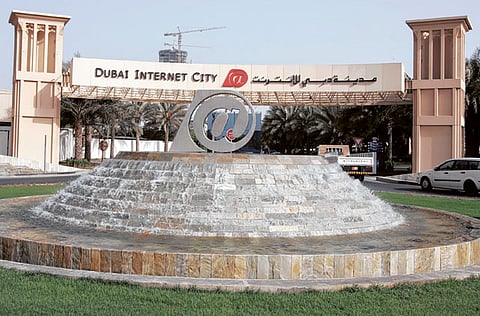Great outsourcing expectations
Clients seek more than cost savings from firms providing data storage services

Dubai: Pent-up demand and a tougher global business climate are prompting corporations to demand more from outsourcing companies that provide offsite data storage and electronic services, Dubai Internet City has said in a newly commissioned report.
As global corporations recover, they are moving to third-party IT outsourcing solutions while being far more cautious in the planning and pre-contract stages of a new data-exchange relationship.
The report's author David Yates, head of commercial IP and technology at Al Tamimi and Co.'s Internet City office, said high demand for outsource services is good news for cloud computing providers in the UAE who can meet greater expectations of consumers.
Yates said the latest push is "providing excellent opportunities in businesses involved in outsourcing services and/or the technology enabling outsourcing solutions in the UAE."
It's estimated that 20 per cent of businesses by 2012 will have no IT assets, preferring to move data management to third-party companies.
To protect confidential information, keep costs low and ensure transparency over a long-term outsourcing contract, Yates said it is critical that the proper contractual foundation be laid down between corporations and outsourcing providers.
Planning and allocation
He said an "effective outsourcing governance approach depends upon good planning from the outset and a sensible allocation of resources and responsibilities during the contract negotiation stage."
Some corporations are now asking outsourcing firms for guaranteed provisions within long-term contracts such as asset inventory, regular reporting, and quality standards.
"Simply relying on warranties under the contract is no longer enough when the timely performance of critical business functions are on the line, outsource facilities might be offshore and customers want real-time rectification of system problems," Yates said. To stave off future problems before they happen, companies are asking for routine regular updates. "As customers are looking to ‘manage' performance, they are hungry for up-to-date information, increasingly insisting on more and better reporting during the term of the contract," Yates said.
Corporations are also demanding take-back and sunset clauses in contracts to put the brakes on a third-party data relationship when it breaks down or downright fails.
"Outsource providers are encountering customers who, with non-exclusive outsource arrangements, seek to negotiate take-back procedures; the providers will, if they fail on a repeated number of occasions to meet performance standards, be forced to relinquish business operations and accept lower fees as a consequence," he said.
Malek Al Malek, managing director of Dubai Internet City, said growth in the cloud computing sector has led to an ever-growing Dubai Outsourcing Zone near Academic City. The zone, he said, "has particularly benefited from the growth of the enterprise segment in the country.
"Buying patterns have changed as companies have realised their value of outsourcing not only in terms of cost but also in relation to business processes within a company."
Perfect base
Dubai Outsource Zone (DOZ) describes itself as "the perfect base for both captive and third-party outsourcing operations to provide mid- and high-end services in areas such as finance, accounting, IT, payroll processing, engineering, R&D and design."
Building upon Dubai Internet City's regionally pioneering digital infrastructure, the DOZ has secured 19 new companies bringing the total of companies to 130 firms employing 5,700 people.
The DOZ says companies have set up within the zone thanks to "high-bandwidth connectivity, IP telephony, automatic call distribution (ACD), interactive voice response (IVR) and predictive dialing systems, satellite communication services as well as technical and infrastructure support. These facilities form part of a plug-and-play infrastructure which helps offshore service providers start operations quickly with minimal upfront investment."
Al Malek said he sees real growth for companies looking to set up tax-free data centres and cloud computing facilities to offer third-party technical support for existing corporations. "We believe this segment will grow into a significant business," Al Malek said.
Emirates' global centre
Emirates airline, for example, is now constructing a new global centre in the zone to handle queries regarding all its business interests, said Al Malek. "They have their own huge building for the global market," he said, adding that banks, health services and tech companies are now neighbours.
Some of the residents of the DOZ include Habib Bank, MashreqBank, ADCB, AXA Insurance, Al Futtaim Willis Co., L&T Infotech, Jumeirah Group, Du, RBS Services and Nokia Siemens Network.
"We have some very good names," said Al Malek, noting that some companies in the zone are opting to "share ICT and business services" for efficiency and cost-saving measures.
Information technology improves governance
According to the latest 2009-10 World Information Technology Report by the World Economic Forum, the UAE ranked second globally among 133 economies surveyed for what survey authors called "importance of ICT [information and communications technology] to government vision of the future". The UAE was also ranked second in the report for "government procurement of advanced technological products". The country was given fourth ranking for "government prioritisation of ICT."
The World Economic Forum gave the UAE high marks once again — fourth place out of 133 economies — for the country's "prevalence of foreign technology licensing."
Sign up for the Daily Briefing
Get the latest news and updates straight to your inbox



